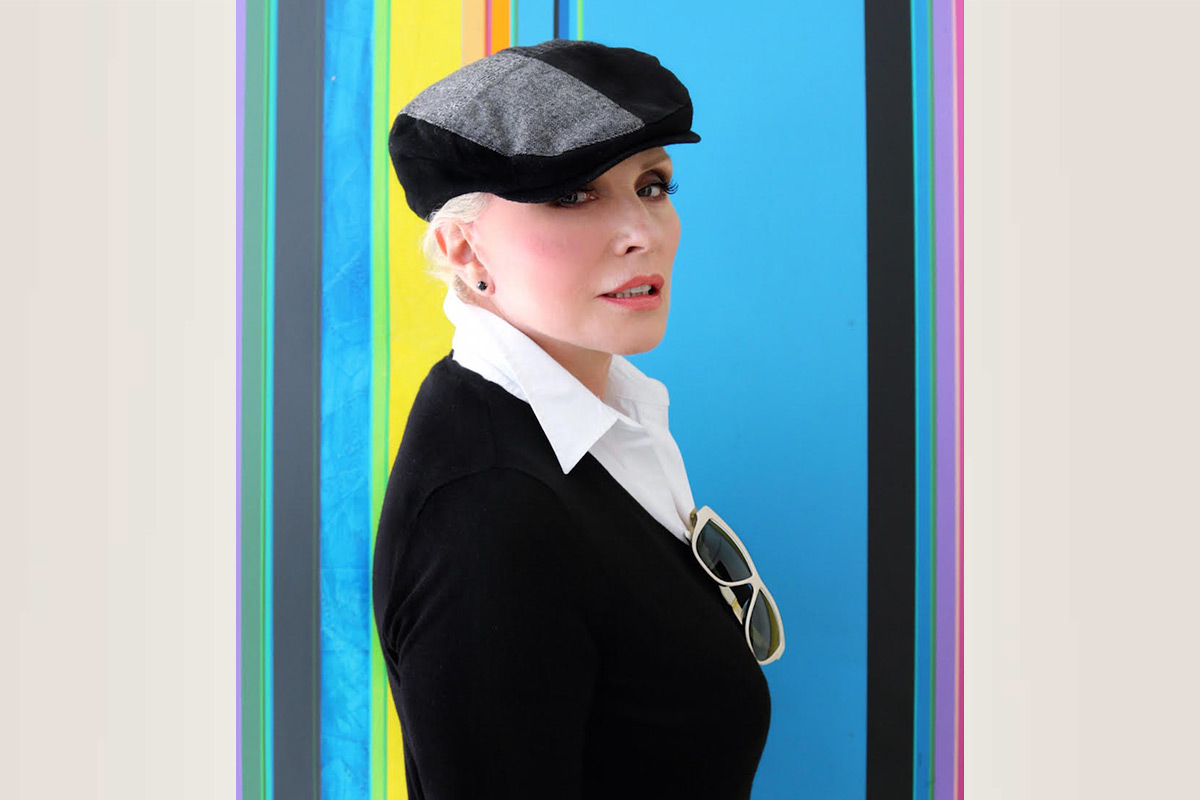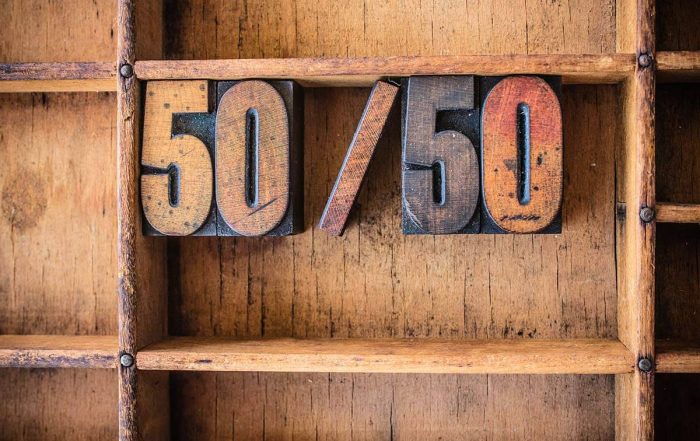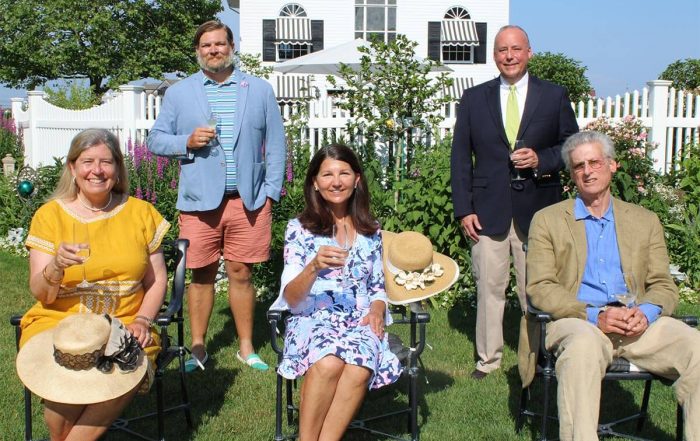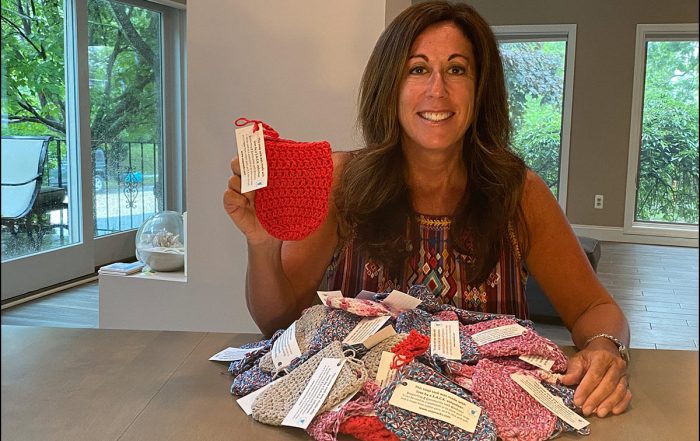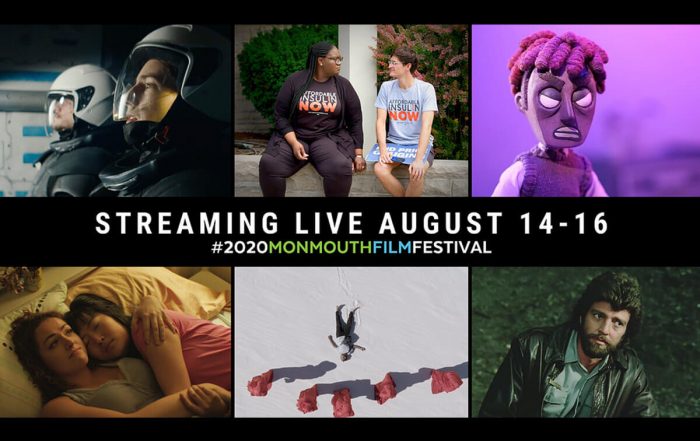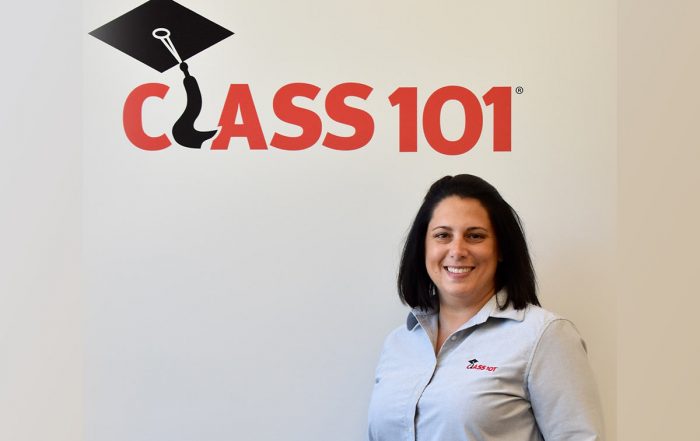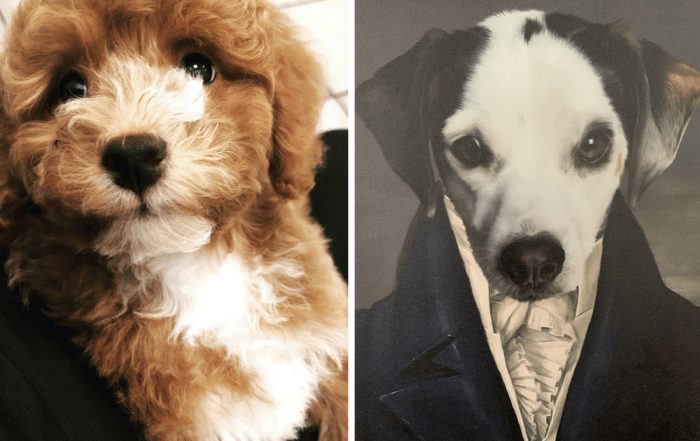FEATURED PHOTO: Debbie Harry | CREDIT: Guy Furrow
Her influence in music, art, and fashion has made the front woman for the band Blondie a rock-and-roll superstar.
Debbie and co-founder Chris Stein fused the sounds of punk, rock, and disco, and were among the first to combine hip-hop and pop. Her success on the charts, both with Blondie and as a solo artist, has made this trailblazer a force in pop culture for decades. Inducted into the Rock & Roll Hall of Fame in 2006, she and the band have sold more than 40 million albums worldwide, and she has acted in more than 30 films and television shows including the original 1988 John Waters’ Hairspray.
Debbie is often referred to as a Lower East Side punk goddess and ambassador of New York cool, but in fact her roots are that of a Jersey girl. Born as Deborah Ann in Miami, Florida, she was adopted by Richard and Catherine Harry of Hawthorne, NJ in 1945 when she was three months old. No stranger to Monmouth County, Debbie’s sister and brother-in-law were the long-time owners of the Lincroft Inn until 2016 and Debbie owns a home along the Navesink River. To be inducted into the New Jersey Hall of Fame on May 6, 2018 as part of the Class of 2017, Debbie will return to Asbury Park early this fall when she will appear with Blondie at the Sea.Hear.Now Festival in September.
When Debbie and Stein started Blondie in the 1970s they were categorized as a new wave band. It was a genre of music influenced by punk, reggae, funk, and electronica and a bit on the edge of popularity. But by their third album, Parallel Lines, Blondie met with mainstream success and the critics began to notice. Heart of Glass reached number one and was soon followed by hits Call Me, The Tide is High, and Rapture. Rapture was ground-breaking in that it included the first female rapping section and it was the first song to feature rapping that topped the charts. But what skyrocketed Debbie to fame was her sense of style and unique approach that made her music her own. Debbie was not only the lead vocalist but wrote many of their songs with Stein. At a time when few female recording artists were the focus of a band, Debbie became a pop music icon.
Debbie was fun to talk with, laughed often, and has a genuine attitude of thankfulness. Here is our exclusive interview with Debbie Harry.
CM: How do you feel about being inducted into the New Jersey Hall of Fame?
Debbie: Pleased and a little surprised. I was asked a few years ago to present, and I was also pleasantly surprised by that. So, I feel very fortunate that I’ve been selected for an award. I think the other people being honored are fantastic. I’m such a fan of most of them, or all of them, and it’s just kind of amazing. It’s so significant that so many people come from New Jersey, I find that really fascinating. I’m really looking forward to the event. One of my great heroes, Meryl Streep, is getting an award. My friend John Roberts is presenting the award to me so it’s going to be a really nice night.
CM: You came to New Jersey as an infant and lived your entire childhood in Jersey. Anything about those years that stand out?
Debbie: Well, I was a kid. Grammar school and then a high school kid. I hung out with my friends. Learned to drive. Dances were fun. There used to be weekly dances in the fire house, and those were a lot of fun. Just the normal stuff until I grew up.
CM: When did you move? Was it for a specific job?
Debbie: I stayed in New Jersey primarily until 1965 or 66, then I moved over to New York for work. I had so many jobs then. I wasn’t really sure what I would be good at, but I was always interested in the arts. If it hadn’t been as a performer it would have been in fine arts. I was just one of those kind of people that had to feel her way around. Sort of fall into the right slot. I wasn’t really focused…some people are quite focused when they’re young and I admire that very much. Unfortunately, or fortunately, my focus came a little bit later.
CM: Well things certainly worked out…
Debbie: It did work out! (Laughs).
CM: How did you find your way to music?
Debbie: It was easy. One of my best friends from high school married a folky guitar player and sitting around in their apartment I started singing while he played. We started singing harmonies and it just evolved from there. It was very casual.
CM: When did your big break come in the industry?
Debbie: I don’t know if there was one big break. It’s like anything else, it’s a series of steps, really. I think it’s very, very rare for an artist to have one big break. Although it does happen, but it didn’t happen that way for me. I started doing little things, then I got a record deal, then, ya know, I tried something else, it was one of those things. A building process.
CM: Is there a moment that stands out in your career as especially significant?
Debbie: I think one of the most significant things was me partnering up with Chris Stein. He and I really had a great…I don’t know what you would call it…maybe an instant understanding. We were really balance for each other. In every way. The things that I was good at, he wasn’t, and vice versa. We sort of had a great feeling for one another.
CM: So, you were great collaborators…
Debbie: Yeah, yeah. And we were both flexible. I liked his ideas and sometimes we would switch off and he would like my ideas. It went like that. It was symbiotic. It just sort of always worked for us, it was an easy relationship. I adored him, and he adored me, and that was that. It was incredible, really. I feel very lucky that it happened to me. If it happens to you once in your lifetime you’re extremely lucky.
CM: You’ve done a little bit of everything in your career, from stage to film to TV. Has there been a part you’ve most enjoyed?
Debbie: The most enjoyable part for me is working with people. I’ve had the privilege of working with great directors. I’ve had a small film career, but a really juicy one, I think. I’ve made some independent, sort of brave choices…and I hope I get to do some more. Ha! (Laughs).
CM: Everyone loved you in Hairspray…
Debbie: Oh, God, that was so much fun. I’ve stayed friends with John (Waters). We just had dinner a few weeks ago. It’s always great to see him and I do run into him socially fairly often.
CM: It’s such a cult classic, anything special you remember?
Debbie: Oh, God, Jerry Stiller! (Laughs) We had a fake tussle, like a little fight, and I had a little clutch bag and bopped him on the head with it not realizing that the clasp made contact with him. It was one of those little round buttons that snapped closed. I bopped him in the head with it and he looked at me like, ha, you, moron! (Laughs) And rightly so. I apologized profusely. But it’s inspiring, ya know, for anyone to work with people that they admire. It’s like a real kick. I got to work with Sonny Bono, John Waters, Jerry Stiller, Devine, and Ricki Lake…it was a great cast.
CM: What’s your favorite song you’ve sung?
Debbie: I was asked that same question just last night, and it’s an impossible choice. It’s about mood and how you’re feeling at a particular time. Sometimes you’ll have such a great time singing a song and then the next time you do it, it just doesn’t compare. Music is so calculated for mood. The musician feels the same way as someone in the audience. Some nights a song will really turn you on, and then the next night it’s a different song.
CM: Is there a philosophy that has guided you?
Debbie: Later in life I had the insight to tell myself to wait for things to evolve, wait for things to change. Don’t get so immersed in a situation that you can’t visualize a change or a different direction. And I think that that’s really valuable advice.
CM: What comes next for Debbie Harry?
Debbie: Ha!! Well, we did the Pollinator album. Part of my dedication in doing that album was in doing an environmental thing to trying to save the pollinator, the bees and hummingbirds. It’s also about our musical heritage and pollinating the younger artists as well as ourselves. I’ve been working with a group called River Keeper and they’ve been working for years on cleaning up the Hudson. Most recently they were fighting to get Indian Point to shut down because it’s such an old reactor and it’s so dangerous for the city of New York and the Jersey Coastline, and the city of Newark, actually. I take this all very seriously now.
Recommended for you
Kids with Cancer Need Help… Here’s What You Can Do
The daily burdens thrust upon families who are battling pediatric cancer are [...]
Monmouth County Historical Association Virtually Celebrates Annual Garden Party
FEATURED PHOTO: MCHA Executive Committee: (l to r front row) Kathy Jones (2nd [...]
Meet Your Neighbor: Stacy Wiener
FEATURED PHOTO: This is where caption text will go for featured photo. As [...]
Monmouth Film Festival Redefines the Festival Experience this August
As film and theater folk like to say, the show MUST go on, [...]
Meet Your Neighbor: Laura Ciccone, Educational Advisor
FEATURED PHOTO CREDIT: Cathy Padilla Laura Ciccone lives in Lincroft with her [...]
Pet Celebs: August 2020
Your pets can be celebrities too. Send in a photo to info@communitymagazinenj.com! [...]



